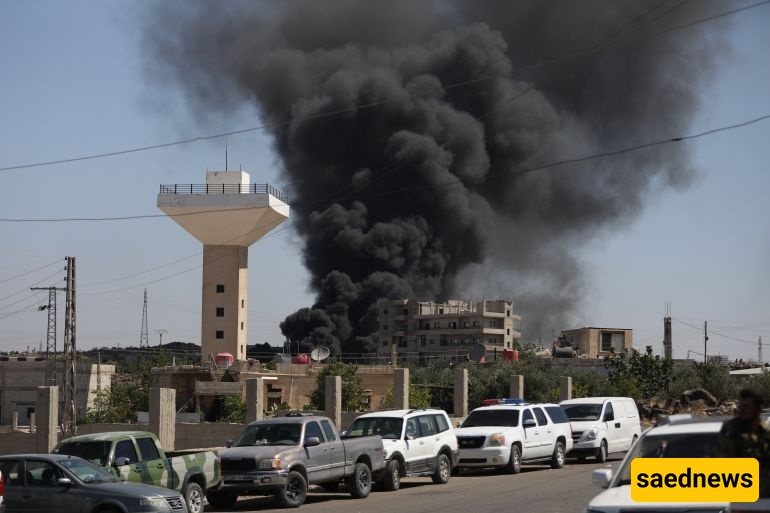SAEDNEWS: Despite the announcement of a ceasefire between the warring groups in Syria’s southern province of Suwayda, a fresh wave of violence and armed clashes has swept through the region. Rising casualties, escalating ethnic tensions, and the central government’s inability to maintain order have exacerbated the crisis.

According to Saed News, citing Al Jazeera, Suwayda province in southern Syria, home to the majority of the country’s Druze community, has once again become the scene of intense and violent unrest. Despite recent ceasefire agreements between forces loyal to Bashar al-Assad’s government and local armed groups, local sources and human rights activists report that the clashes have not ended but rather escalated.
The violence began with scattered clashes but quickly escalated into widespread armed confrontations between security forces, pro-government militias, and local Druze groups. Reports indicate dozens have been killed or injured, and many families have fled their homes.
Root Causes of the Crisis in Suwayda
While armed conflicts in Syria have largely centered in the northwest in recent years, Suwayda in the south was often seen as a relatively calmer area. However, beneath this calm, deepening fissures were spreading.
Public discontent over widespread corruption, unemployment, lack of public services, the influence of organized criminal groups, and severe economic pressures gradually pushed the traditionally cautious Druze community towards open opposition to the Assad regime.
Reports also indicate increased involvement of armed groups affiliated with security and intelligence forces in local developments—an issue that has fueled anger and resistance among local groups.
Has the Ceasefire Failed?
The ceasefire agreement, signed a few days ago between tribal elders, local forces, and representatives of the central government, appears not to have been fully implemented. Some sources claim security forces have violated the agreement under various pretexts, while local groups have retaliated in kind.
Analysts argue that without mutual trust-building measures, an independent monitoring mechanism, and international support, the ceasefire is unlikely to hold. With each side aiming to consolidate its power in the region, a rapid return to violence is highly likely—as is currently unfolding.
Humanitarian and Security Consequences
The ongoing violence in Suwayda has severe repercussions for civilians. Local sources report widespread destruction of homes, acute shortages of food and medicine, and disrupted access to healthcare services. Furthermore, with the increasing likelihood of additional military deployments to the area, there are growing fears of a new wave of displacement and migration.
On the security front, escalating violence in Suwayda risks destabilizing neighboring regions such as Daraa and even the borders with Jordan. Should the crisis expand, the involvement of regional and international actors becomes increasingly probable.
Reactions: International Silence or Renewed Pressure?
Despite the worsening crisis, the international community’s response has so far been muted. The United Nations has expressed concern but taken no substantive action, while Western countries remain primarily focused on northern Syria and the ongoing fight against ISIS remnants.
However, some observers warn that if the global community continues to ignore the Suwayda crisis, the region could become a new hotspot for sectarian conflict, local power struggles, and state collapse—a trajectory whose consequences would quickly spill beyond Syria’s borders.
Conclusion: Suwayda as a Mirror of Syria’s Broader Situation
Suwayda province has become a symbol of Syria’s contradictions: a region once perceived as relatively calm, now engulfed in intense violence rooted in injustice, corruption, and a power vacuum. Any meaningful resolution will require the involvement of local communities, transparency in political processes, and effective international pressure.
A ceasefire without trust is a fragile peace—and Suwayda today, with gunfire still echoing, stands as a stark testament to this harsh reality.

